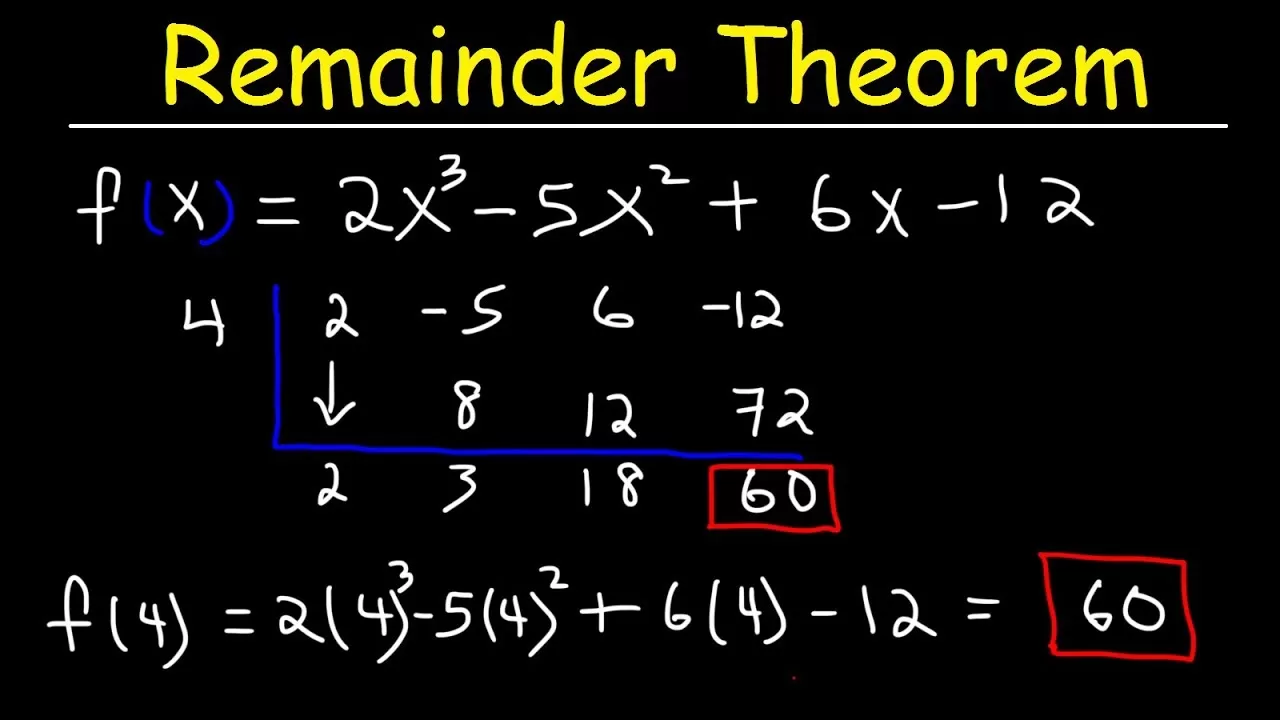A linear polynomial is a sort of polynomial in which the degree of the variable equals 0. The remainder theorem is used to divide a polynomial of any degree by a linear polynomial. If we consider the arithmetic operation of division, we may understand the word remainder.
At some point throughout this procedure, you may come across a number that we cannot divide any further by the quotient; this number is known as the remainder denoted by the letter R. We know that when we divide any two numbers, an equation is produced as follows: dividend equals to the product of the quotient & the divisor plus the remainder.
Table of Contents
Definition of Remainder Theorem
Everyone appreciates discovering an easy way, either for driving instructions or another type of time-consuming task. Finding a quicker and more effective route to the very same destination makes you happy since you’ve likely saved time, effort, as well as money. One of the more useful shortcuts in mathematics is the remainder theorem.
According to the remainder theorem, when a polynomial, named f(x), is divided by a linear polynomial, x – b, the remainder is identical to f(b). In other words, if you wish to compute the function f(x) for a given integer, b, divide it by x – b, and the residual will equal f(b).
Difference between Factor Theorem & Remainder Theorem
Polynomial theorems include the factor theorem, the remainder theorem, and several more. As a result, in order to get a deeper understanding, you must understand the distinctions between them. The following points examine the differences between them.

- We use the remainder theorem to divide any given polynomial of any degree by a linear polynomial, while the factor theorem is often used to entirely factorize a polynomial. It also begins with a polynomial defined as f (x), where x is a variable. The factor theorem states that for a given polynomial f (x), the x-a would be only applicable or relevant when the remainder value is equal to zero.
- The theorem signifies that, when two polynomials are divided, the value of quotient and remainder will always come which won’t be equal to zero. The remainder theorem occurs when 2 polynomials are split, the quotient, as well as remainder, will always be greater than zero.
Remainder Theorem Function & Uses
Have you ever performed synthetic division in Mathematics? Let’s know how synthetic division is used along with the Remainder Theorem. The remainder theorem, which we studied previously, is particularly useful when applied with synthetic division. If you recollect, synthetic division is a method for quickly and easily dividing polynomials that is similar to long division.
Remember that in the process of synthetic division, the number in the bottom section of the last right column represents the remainder that is left. Instead of entering a value and using a sequence of operations, synthetic division can be used to calculate a polynomial for any given value.
Cuemath Website
You’ve probably noticed that the subject is straightforward to understand. Problems involving the remainder theorem are easier to tackle if you have conceptual clarity on the subject, which is where Cuemath website comes in. They are the most effective online math services platform for laying a strong mathematical foundation.
Cuemath is the world’s leading live online math teaching platform, guaranteeing a solid mathematical foundation. Their courses provide students with one-on-one interactions with the best instructors, helping them to better comprehend math subjects.
To make students feel confident, teachers engage them in a range of extracurricular activities such as puzzle-solving, practical problem solving, and so on. You can visit the Cuemath website to learn more about these concepts in-depth.
Read more: Pakistan Networks







